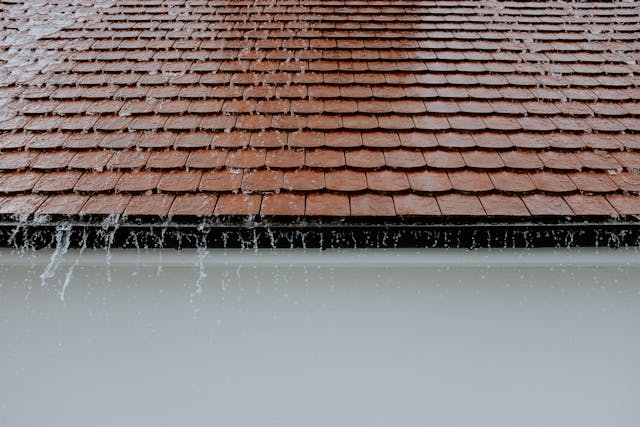
Key Takeaways
- Tax Savings Advantage: Depreciation reduces your taxable income by allowing you to deduct a portion of your property’s value each year, helping you keep more of your rental income.
- Market Value Reality: Depreciation only affects your taxes, your property can depreciate on paper while still appreciating in market value, offering a strong financial advantage.
- Recordkeeping Importance: Maintaining accurate records of improvements and cost basis ensures you maximize deductions and avoid tax issues when selling your rental property.
If you own a rental home, you have probably heard the term “depreciation” tossed around. It comes up every tax season, yet most landlords never get a clear answer about what it really means.
The truth is, understanding how depreciation works can change how you look at your property, not just as a home, but as an investment.
In this guide from Legacy Realty & Management , we’ll break down what depreciation is, how it affects your property’s value, and why understanding it is essential for every rental property owner.
Contact Us Today
What Is Depreciation?
Depreciation is essentially the gradual loss of value that occurs as your property ages. Over time, buildings experience natural wear and tear — paint fades, appliances wear out, and roofs or plumbing systems eventually need repairs.
The IRS recognizes this decline in value and allows landlords to deduct a portion of it each year as a tax benefit. For residential rental properties, the IRS permits you to depreciate the building (but not the land) over 27.5 years.
For example, if your property’s building value is $275,000, you could deduct roughly $10,000 per year from your taxable rental income .
That annual deduction can significantly reduce your tax burden, making depreciation one of the most valuable financial advantages of owning rental real estate .
How Depreciation Affects Property Value
Here’s where things get interesting. Depreciation is a valuable tool for lowering your taxable income, but it doesn’t actually mean your property is worth less in the real world.

Your home’s market value depends on factors like location, demand, and overall condition. not just what’s written on your tax forms.
So, while you’re claiming depreciation as a loss on paper, your property could still be appreciating in market value, a win-win for savvy landlords.
However, there’s one important caveat: when you sell, the IRS expects you to “recapture” that depreciation. In simple terms, you’ll need to pay taxes on the total amount you claimed over the years, often at a higher rate than standard capital gains.
Depreciation can save you money every year, but it’s important to plan ahead for the recapture tax when it’s time to sell your investment property
What You Can and Cannot Depreciate
Not every part of your property qualifies for depreciation. Land never depreciates because it doesn’t wear out or lose functionality over time.
However, many other components of your rental property do qualify, including:
- The main structure of the building
- Major systems such as HVAC, plumbing, and electrical
- Roofs, flooring, and other structural features
- Appliances and carpets (typically on shorter depreciation schedules)
Additionally, major improvements that add long-term value, like a kitchen renovation, new windows, or a deck addition, can also be depreciated.

On the other hand, minor repairs like patching drywall, fixing a leaky faucet, or repainting walls are considered maintenance expenses and can be deducted in the year they occur, not depreciated over time.
How Cost Basis Plays a Role
To calculate depreciation, you begin with your cost basis, essentially, what you paid for the property plus the cost of any major improvements made over time. This figure determines how much you can deduct each year.
Keeping accurate records of upgrades is essential. Every new roof, HVAC system, or renovation you complete increases your cost basis, which in turn increases your total allowable depreciation. Staying organized with receipts and documentation will make tax season much smoother and ensure you claim every deduction you’re entitled to.
Why Depreciation Matters to Landlords
Depreciation might seem like a small accounting detail, but it’s actually one of the most powerful tools available to landlords.
It provides three major benefits:
- Reduces Taxable Income: Depreciation helps lower your annual tax bill, keeping more rental income in your pocket.
- Tracks Property Health: By recording depreciation, you naturally monitor which parts of your property are aging and may soon need replacement, helping you plan for future maintenance.
- Supports Investment Growth: When used strategically, such as through a 1031 exchange, you can defer paying depreciation recapture taxes when upgrading to a new property.
Market Value vs. Depreciation Value
Here’s a common misunderstanding: depreciation affects your taxes, not your market value. Your property’s market value is based on what buyers are willing to pay, often increasing due to demand, location, and market conditions.
.jpg)
For instance, national data shows that home prices have continued to rise in recent years. So, while you may claim depreciation on paper, your actual property could be appreciating in value at the same time.
It’s important to look at both sides, depreciation reflects the tax story, while market value reveals the true financial story of your property investment .
Mistakes Landlords Should Avoid
Depreciation can be incredibly beneficial, but even small errors can lead to missed deductions or tax complications.
Common mistakes include:
- Forgetting to start depreciation in the first year the property is rented
- Mixing land value with building value
- Overlooking improvements that qualify for depreciation
- Misclassifying repairs as improvements (or vice versa)
- Losing track of how much depreciation you’ve already claimed
Understanding these details and keeping meticulous records ensures you get the full financial benefit of depreciation while staying compliant with IRS rules.
Get Your Free Rental Price Analysis
Bottom Line
Depreciation might seem complicated at first, but once you understand how it works, it becomes one of the most powerful tools in your financial toolkit. It helps you save money now, plan strategically for the future, and maximize the long-term value of your rental property.
If you want expert help managing your rentals or keeping detailed records of property improvements, visit our contact page. At Legacy Realty and Management , we help landlords protect their investments, stay organized for tax season, and get the most out of every property they own.
